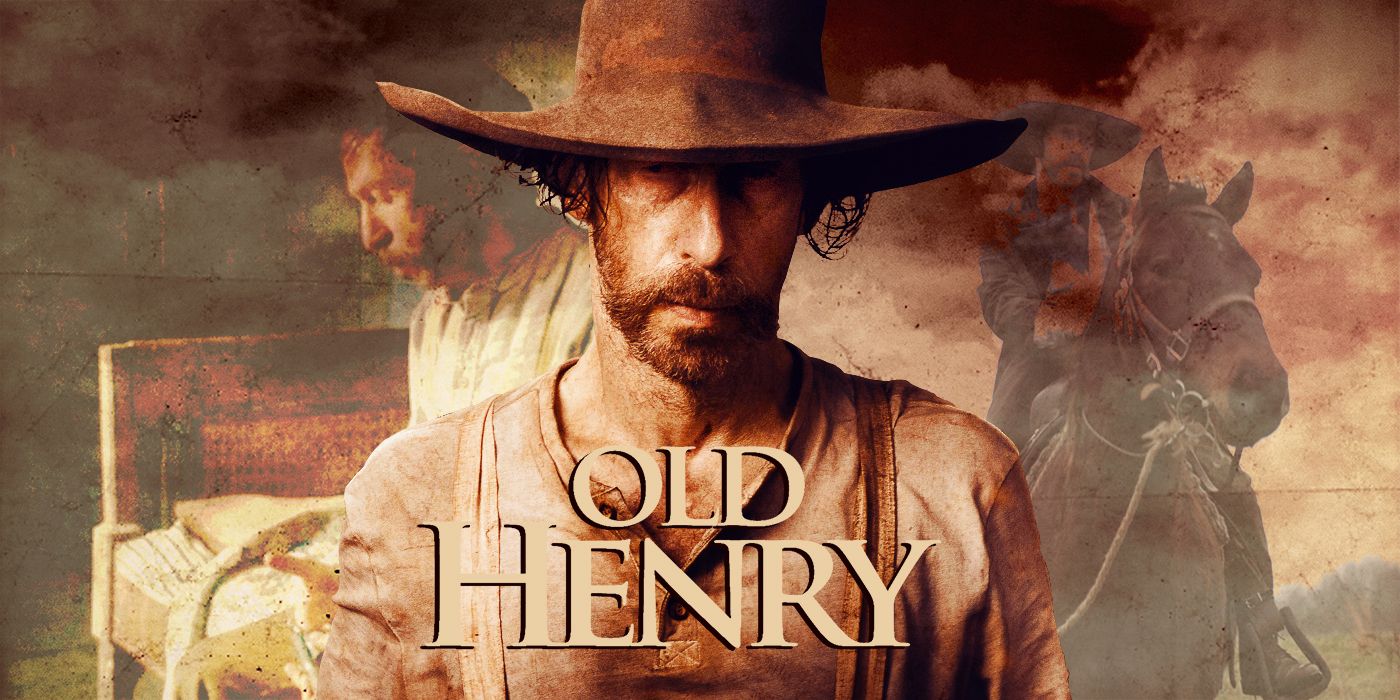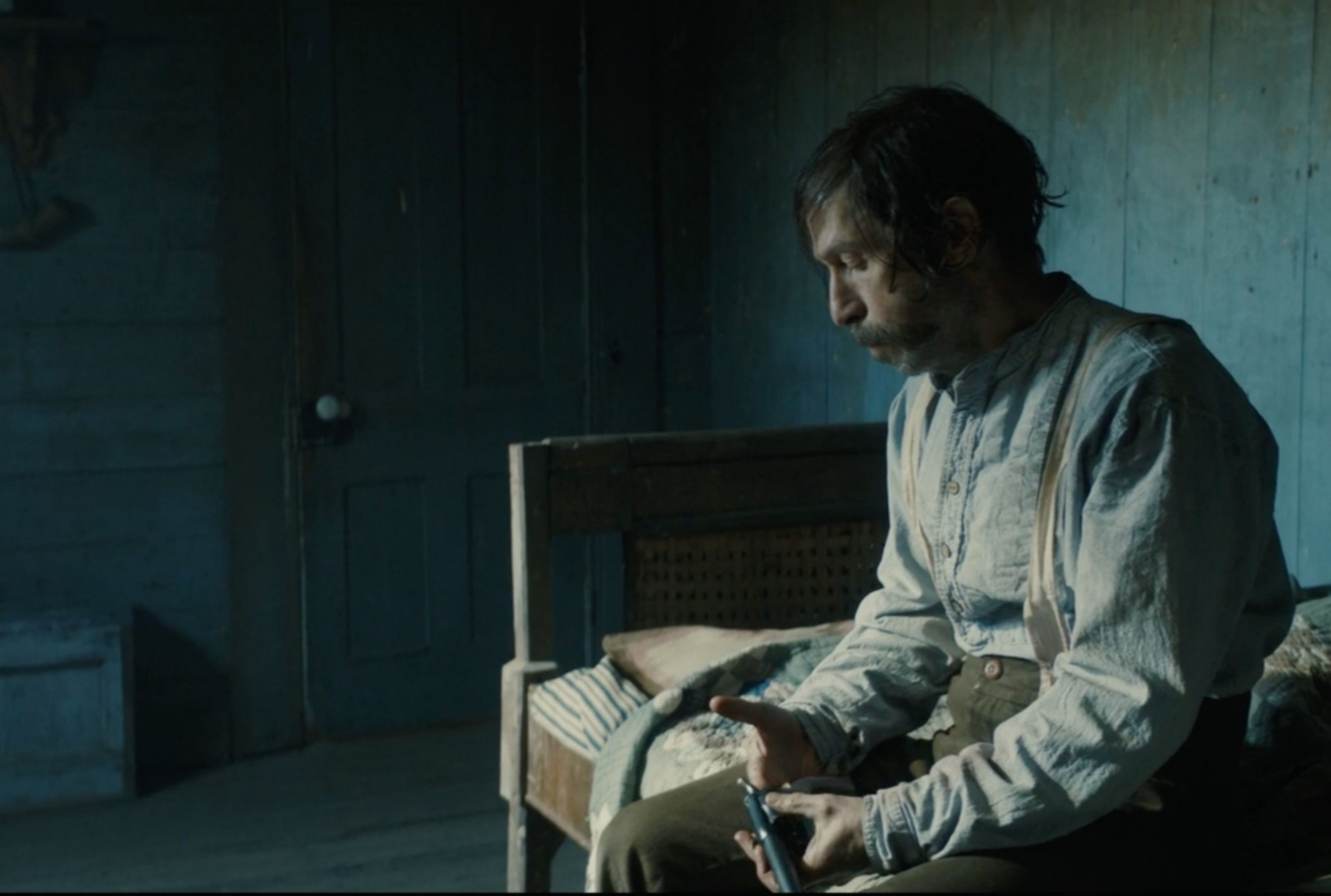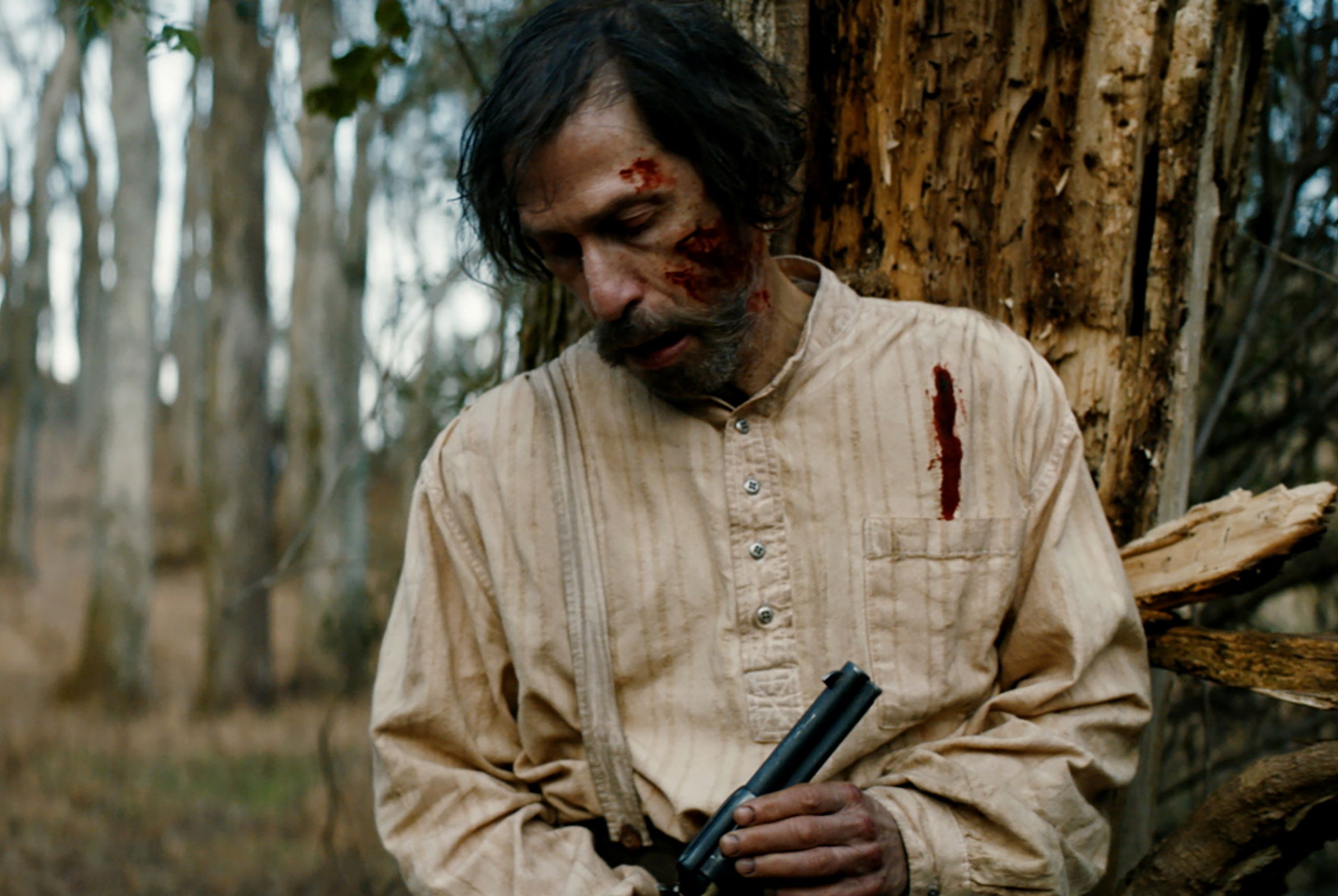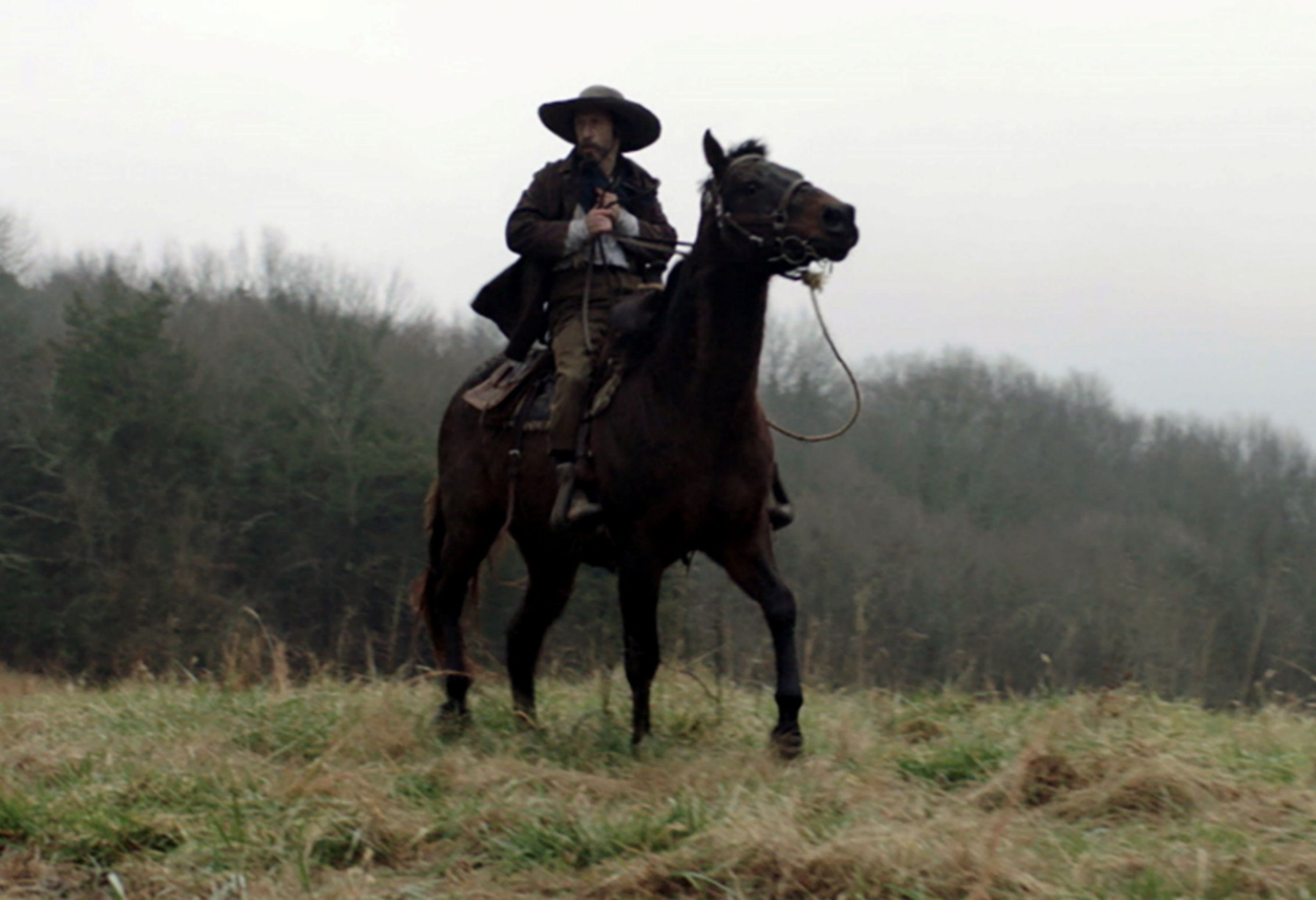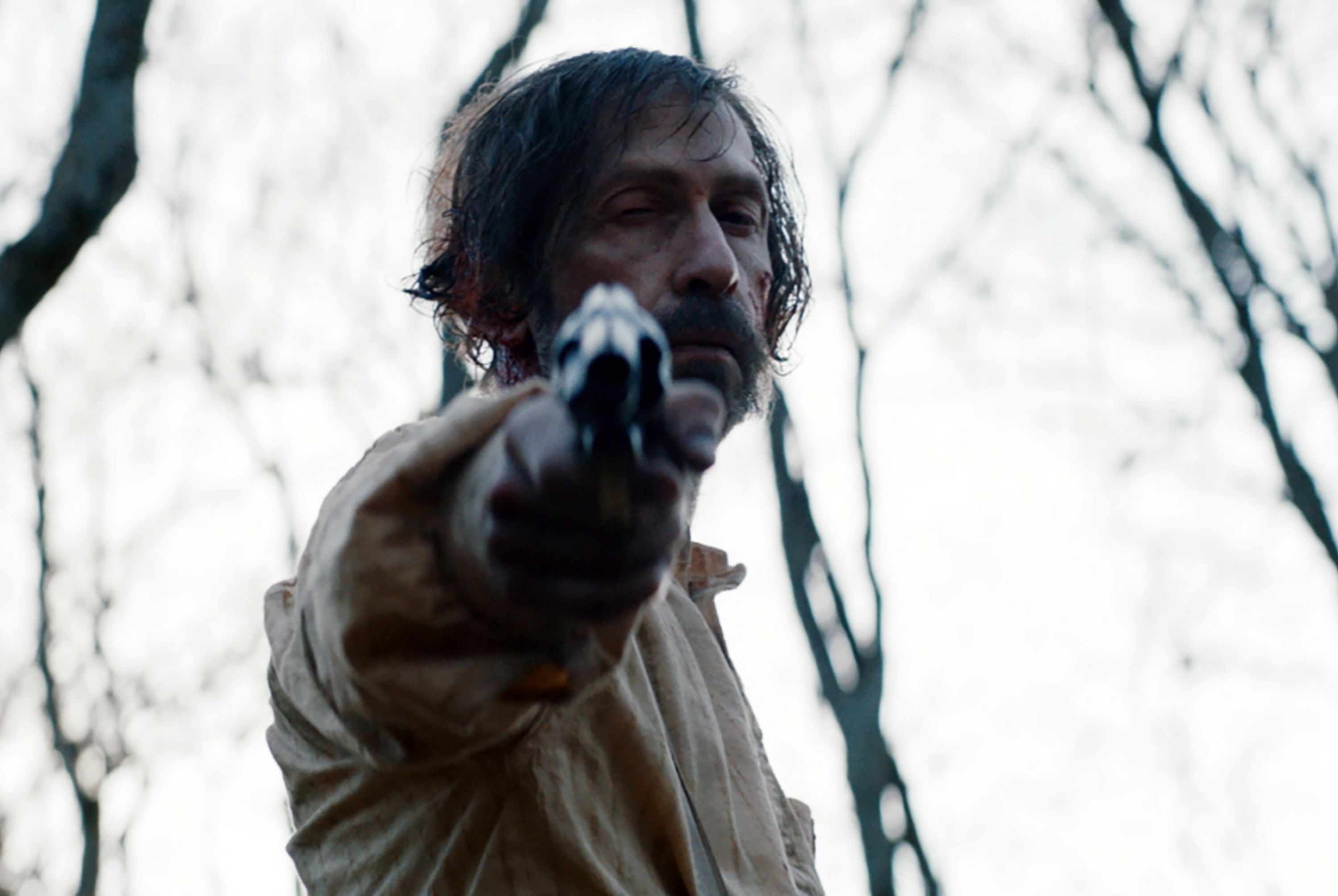From writer/director Potsy Ponciroli, the western Old Henry is a character portrait about a widowed farmer (Tim Blake Nelson, who’s also an executive producer on the film) and his teenage son (Gavin Lewis), as they take in a mysterious man on the verge of taking his last breath. As secrets are revealed and a fight finds its way to Henry’s doorstep, he must call on his past in order to defend himself, his family, and his homestead.
During this 1-on-1 interview with Collider, Nelson talked about why this script appealed to him, having his son be a part of the crew, how he never thought of quitting acting, even when he struggled to get roles, developing his character’s gun-slinging style, what four criteria he needs to have before signing onto a project, and his experience working with Guillermo del Toro, including for the upcoming Nightmare Alley.
Collider: When you first read the script for Old Henry, did you know any of the secrets of this story, going into it, or did you get to experience those reveals as you read it? Did you have any idea what you’d be reading, as you read it?
TIM BLAKE NELSON: I had none whatsoever. In fact, I was making dinner for the family and an email came in and said, “You’ve been offered the role of Henry in an indie drama, Old Henry.” I thought, “Well, it happened finally. I got a character who’s described as old. It was inevitable. So, here we go.” And then, read it, not even knowing it was a western and found myself drawn in immediately. Not only because I love meat and potatoes, straight ahead, unapologetic, violent westerns, and I knew that was coming. You can infer it early on. But at its heart, it was the story of a father and son. I’m, with my wife, raising three boys and I have my own version of Henry’s conflict, which is, do you protect your children from the big, bad world outside of your home, or do you expose them to it, so when they become adults, they’re equipped to deal with it. That really spoke to me. By the time I’d finished the script, it felt irresistible. In terms of the big reveal, there was a titillated dread associated with that because it just deepened my sense of responsibility in playing the role. I knew that it was gonna involve bigger challenges than I was imagining, before that happened in the story.
I love that it feels like the movie works, even without that reveal, and that it doesn’t necessarily rely on that reveal. It gives you a full enough picture of this guy and who he is and that father-son dynamic, that you care about that before knowing anything else going on with him.
NELSON: I’m glad you said that and I really do hope that the film is more than its twist. Movies that are all about the twist ultimately fail to satisfy us. One of the greatest twists ever is in The Usual Suspects, but you’re so entirely in the movie’s thrall that when you find out that Kevin Spacey’s character is Keyser Söze, you were already interested in and that just makes the experience all the better.
You’ve also previously talked about how your son was in the art department on this, which means this movie was actually a real family affair and not just a story of a family that you were telling. How did that come about and what was it like to work with your son, in that capacity?
NELSON: He’s a hard worker. I’m not a dad who would bring a son onto a project as some sort of sinecure or to hang out. He did his job really, really well. He’d been on another movie, several months before, and I got a chance, for the first time, to experience his level of commitment on a movie set. This is something he wants to do, and I’ve been careful to expose him more to the setbacks of a career in the arts than to the successes. It’s been important for me to get him on crews, so he can understand what a slog is. I’ve also always told him, when you look around on a movie set, no matter how hard they’re working, you’re looking, for the most part, at a group of people who would rather be right where they are, doing this, than anything else. Their work is their play. At the same time, the work is really difficult. The days for the crew are 14 hours, not 12. You often don’t get a turnaround. And in the end, you get very little of the credit, so you’ve gotta really love it and really understand that it’s not about the glamour. My boys also understand that, for actors, it’s not about the glamour either. I always joke, particularly when I’m routinely rejected, or I’m on a list for a part and it goes to somebody else, or when I’m working an 18-hour day, there’s nothing I’d rather do than be an actor. When I’m on a film, I feel enormously grateful, but it’s not glamorous. It’s great to look over at my son, working his ass off on a crew, and see him internalizing that and also seeing it not slow him down in the least, but that it only increases his enthusiasm.
Have you ever had any moments in your career where you wondered if acting was the thing you wanted to keep doing? Were there ever points where you felt discouraged enough that you didn’t feel like acting was the thing you wanted to do, or have you always maintained that love?
NELSON: During my first 10 years, I was really only working in theater. I’d do a movie and a TV guest spot every year, but the parts in movies were hallway parts, which is where the lead character needs a bit of information between point A and B. There’s a hallway, so you walk with him down the hallway and he gets a piece of information from you, and then you disappear, never to be seen again in the universe of the film. I wondered, as I would audition and audition and audition and mostly get rejected, during those years, whether I had it in me to do that for my entire life, but I never thought of quitting. It was always morbidly comforting to sit in waiting rooms with people in the same boat and to understand that we just loved doing this, and that auditioning is the work and the jobs we’d get were the reward for the work. That’s why actors keep plugging away, and that’s what I did.
Your character in Old Henry has his own unique gun-slinging style, which is not typical. Even if you’ve used a gun for roles before, it seems like it would be a very different kind of gun play for this. Did you spend a lot of time working on that? How did you figure out how to get comfortable with that kind of gun slinging?
NELSON: Thankfully, I had a year from when I learned I had the part to when we started shooting for it because it, in part because we got delayed by COVID. I had a single image of the historical figure that the character of Henry is based and a lot of reading material about him from people who actually knew him. And so, the challenge became taking the guy in that picture, in that single image, and combining that with descriptions of how he moved and how he handled a gun, with a guy who’s been, for decades, on a farm repudiating all of that. That led me, in a very gradual way, to how he moved and handled the gun. I’ve learned, as I’m in my third decade of doing this, to slow myself down and not make quick decisions that will give me some relief, but might not be the best decisions. I used to just seize on an idea for a part, and then feel a sense of relief and, “Okay, I got it,” and be very comforted by that. But half the time, the choice will not have been the deepest one I could have made. And so, I’ve learned to slow down. Since I had a lot of time to study this guy and to work in a very gradual way, he really seeped into me. After literally months of working with the gun, which I already knew a lot about because I played Buster Scruggs, it started to come in a way that was specifically his and felt consistent with the photograph of him and everything I’d read.
When it comes to projects, because you are working with such visionary artists, how do you figure out what you’re going to do next? Is it a gut instinct? Is it the filmmaker’s vision? What is the priority for you, at this point?
NELSON: You’re right about gut instincts and you’re right about artistic vision, but ultimately there are four criteria. A project has to feel irresistible and that I can’t not do it. I have to feel that it’s being led by a director who’s going to be benignly relentless in his pursuit of getting what he wants. I have to feel like I’m right for the role, to the extent that, without sounding arrogant, I feel like I’m gonna bring something that no one else could, that will make sense to the way the director wants to tell his story or her story. And finally, I have to feel like the producers and the crew, but mostly the producers, are gonna support the director’s vision, to the extent that he or she is gonna be able to realize it. If all of that is in play, I’ll probably do the movie. It’s not really about the size of the role. It’s not so much about what the money is gonna be because usually the films that want me or aren’t gonna pay a huge amount of money. That’s the way it ends up.
You also got to play the Carnival Boss in Nightmare Alley. What’s it like to be a part of and to experience a world created by someone like Guillermo del Toro, who just seems like a mad genius with his art?
NELSON: I suddenly find myself in the maelstrom of Guillermo because we’ve done three projects together in the last year. I love my part in Nightmare Alley. It’s not a big one. To call it a supporting role would be generous. But like anyone with half a brain just wanna be around him. In terms of being around that world, he’s a maximalist. Every frame in his films is full, not only the color and vibe, but information. He’s uncommonly generous, in that way, and yet somehow the frame never feels cluttered. It feels just right, and being around him on set taught me why. He’s got a sense of composition and balance that you just don’t find in many other filmmakers. He puts that care into every moment. And then, in the middle of that, I’ve worked with no other director who’s more meticulous about performance. He’s nothing short of thrilling to be around. He’s also more eloquent, in his way, about fascism and the pitfalls of capitalism than just about anyone I’ve ever met. He’s also got this series coming out on Netflix, called Guillermo del Toro’s Cabinet of Curiosities, which is a limited series of eight distinctive horror films. I’ve just completed shooting one of those.
Old Henry is now playing in theaters.

